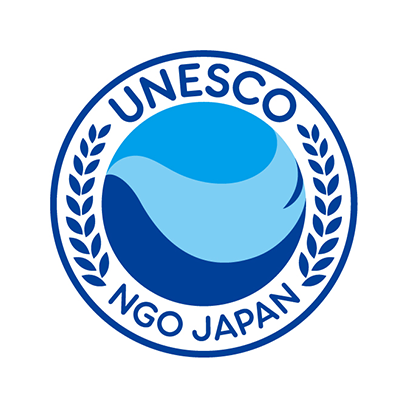
On 19 July 1947, the world’s first non-governmental UNESCO association was established in Sendai. The National Federation of UNESCO Associations in Japan (NFUAJ), constituting various regional UNESCO associations, was subsequently established in 1948. NFUAJ concurrently promotes the non-governmental UNESCO movement while upholding the UNESCO constitution. Comprising approximately 270 UNESCO associations and clubs throughout Japan, this non-governmental organization (NGO) aims to achieve the objectives of international peace as well as the common welfare of mankind through grassroots activities in Japan and abroad.
Key Activities
World Terakoya Movement
The World Terakoya Movement targets individuals who are deprived of education due to reasons such as poverty, conflict, and gender. By creating physical spaces and opportunities for learning in developing countries, this movement also helps said individuals to develop the mental strength and courage to live.
World Heritage Activities・Heritage for the Future Movement
The variety of World Heritage Activities, as well as the Heritage for the Future Movement, seek to raise awareness about, and preserve and protect, precious Japanese world heritage properties. These properties encompass cultural and natural heritage sites, which shall be passed on to future generations.
Post-Disaster Educational Support and Disaster Risk Management in Education
In line with initiatives pertaining to post-disaster educational support and disaster risk management in education, NFUAJ supports the learning of children affected by natural disasters and assists them in achieving their future goals.
Fostering Future Generations for the Accomplishment of Sustainable Development Goals (SDGs)
The United Nations’ Sustainable Development Goals (SDGs) aim to leave no one behind and create a better world for all. In light of these goals, NFUAJ aspires to nurture future generations of youth with global perspectives who are willing to play an active role in local communities.
NFUAJ projects for UNESCO Associated Schools Network (ASPnet) in Japan
- (1) UNESCO ASPnet SDGs Assist Project
This project provides grants for Education for Sustainable Development (ESD) initiatives run by UNESCO ASPnet in the hope of accomplishing the United Nations’ Sustainable Development Goals (SDGs). - (2) AXA-NFUAJ Disaster Risk Management Education Program
With the aim of reinforcing disaster resilience practices at schools through lessons learned from the Great East Japan Earthquake, this program provides grants and teacher training sessions to Japanese schools incorporating disaster risk management in their curricula. - (3) Cambodia Study Tour for High School Students
To promote acceptance, learning, and a deep understanding of varying nationalities, ethnicities, and cultures, high school students affiliated to ASPnet schools in Japan are given the opportunity to attend study tours in countries participating in NFUAJ’s World Terakoya Movement, such as Cambodia. - (4) NFUAJ ESD Passport Project
This project aims to contribute to the creation of sustainable societies through the distribution of ESD passports, which serve as incentives to increase participation in volunteering activities. - (5) World Terakoya Movement Leaflets Project
The project aims to encourage learning, consideration, and action relating to current global issues through the creation of leaflets about NFUAJ’s World Terakoya Movement. - (6) Mitsubishi Asian Children’s Enikki Festa
With the objective of promoting cultural understanding and Education for Sustainable Development (ESD), children from 24 Asian countries and regions are invited annually to submit picture diary entries (Enikki) themed ‘My life, the way I wish to convey it’ at this festival.
For more information on the aforementioned projects, visit the official National Federation of UNESCO Associations in Japan website.
